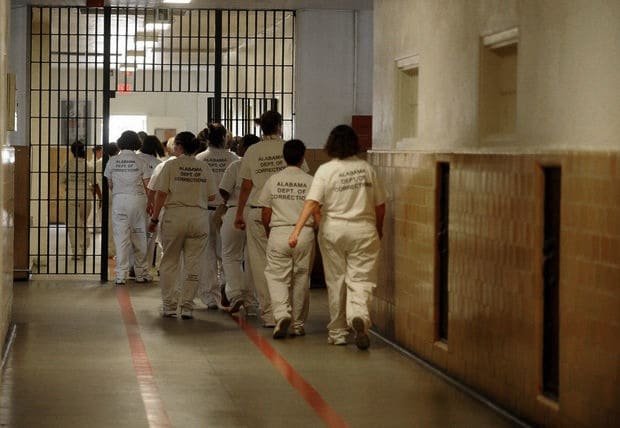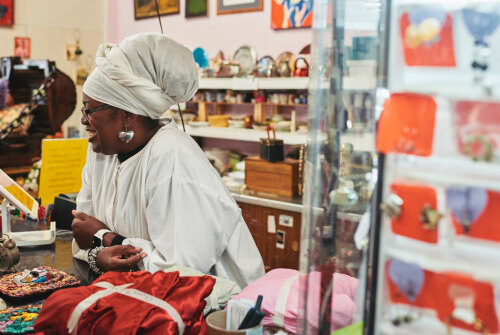Editor’s Note: That’s right, we’re taking a look back (you know, hindsight) to see how we can best prepare (that’s the foresight; I think you get the idea) for the future, and in order to do that, we worked with professor Betsy Weiss (Communications professor at Tulane University) and her students to investigate the prison system and what we can and should be learning from its past and present.
It’s a widely known fact that the United States has an especially punitive criminal justice system. The country currently has about 2.12 million people in prison, making it the nation w ith the most prisoners in the world. Many people have reported on the horrifying conditions within U.S. prisons, but the lasting impact of incarceration on prisoners and their families is often overlooked. After prison, many formerly incarcerated people struggle to find employment, to have healthy relationships, and to maintain good mental health. These issues are only made worse by the socio-economic and racial disparities that are extremely prevalent in the United States.
ith the most prisoners in the world. Many people have reported on the horrifying conditions within U.S. prisons, but the lasting impact of incarceration on prisoners and their families is often overlooked. After prison, many formerly incarcerated people struggle to find employment, to have healthy relationships, and to maintain good mental health. These issues are only made worse by the socio-economic and racial disparities that are extremely prevalent in the United States.
According to The Sentencing Project, “African Americans are incarcerated in state prisons across the country at more than five times the rate of whites.” This unfortunate statistic highlights the issues that formerly incarcerated people must face when they reenter society. Because black people are incarcerated at disproportionate numbers in the United States, formerly incarcerated black people must face additional barriers to successfully reintegrate into society.
One of the most significant skills that a human can have is communication. Without it, we would not be able to effectively express our thoughts and emotions. Although this may seem like a basic skill, many formerly incarcerated people struggle with this. In fact, Maryam Uloho, the founder of Sister Hearts Thrift Store, has said that communication has been her biggest struggle after leaving prison. Not having the ability to effectively communicate undoubtedly hinders almost every aspect of our lives.
When reentering society, many people struggle to reconnect with family members and form new friendships. It’s understandable that after not connecting with the outside world for a significant amount of time, formerly incarcerated people would grapple with relationships, especially when many say that communication is their biggest struggle. Forming meaningful connections with loved ones is extremely important, and even more so after being isolated for a long period of time. Formerly incarcerated individuals are likely to need an outlet to process the tension and trauma from prison, heightening the need for positive communication and relationships.
Another challenge for people released from prison is finding employment. A study conducted in 2019 by the Center for American Progress found that black workers have less access to employment than white workers. This issue would be exacerbated by a formerly incarcerated status. Many people leave prison without having a college degree and without significant job experience. This has resulted in a 27.3% unemployment rate for formerly incarcerated people, while the general public just has a 5.2% unemployment rate. Not having reliable income means that formerly incarcerated people are likely to have issues with housing, nutrition, and access to health services.
The prominent issues of communication, relationships, and employment among formerly incarcerated people are exactly what makes the model of Sister Hearts so effective. The Sister Hearts Decarceration program was founded by Maryam Uloho after she spent 13 years in prison. In the program, former inmates work and live in the Sister Hearts Thrift Store in Arabi, Louisiana. By creating and facilitating this program, Maryam Uloho is addressing the most pressing issue that formerly incarcerated people face. The women in this program are provided with employment and housing while gaining communication skills by interacting with customers and each other. This creates a much-needed sense of community that many formerly incarcerated people struggle to find. Not only are these women shown the

Maryam Uloho in the Sister Hearts Thrift Store
basics of surviving outside of prison, but they are also shown how to truly live. To achieve this, Maryam Uloho has begun to use the word decarceration, which she says means to “reverse the trauma of incarceration.” She actively works to decarcerate by using her own decarceration handbook, teaching classes in a correctional facility, and through her thrift store. Programs such as this one are extremely necessary for formerly incarcerated people to reclaim their lives.
To learn more about Maryam Uloho’s work, follow The Decarceration Center and the Sister Hearts Thrift Store on Instagram.
This piece is part of an on-going series produced in Professor Betsy Weiss’s class, “Punishment and Redemption in the Prison Industrial Complex,” which is taught at Tulane University.
 NOLAbeings Multimedia artist Claire Bangser created NOLAbeings as a portrait-based story project that marries...
NOLAbeings Multimedia artist Claire Bangser created NOLAbeings as a portrait-based story project that marries...  Voodoo in New Orleans: Reviving history: New Orleans fortune telling This article takes a deep dive into the history of Voodoo in New Orleans, its hybridization with Catholicism, and its present-day place in the city's culture. The author visits fortune-tellers in the French Quarter, using their guidance as a tool for introspection rather than a deterministic predictor of the future. Through her experiences in New Orleans, the author feels a mystical connection to both the past and the future.
Voodoo in New Orleans: Reviving history: New Orleans fortune telling This article takes a deep dive into the history of Voodoo in New Orleans, its hybridization with Catholicism, and its present-day place in the city's culture. The author visits fortune-tellers in the French Quarter, using their guidance as a tool for introspection rather than a deterministic predictor of the future. Through her experiences in New Orleans, the author feels a mystical connection to both the past and the future. 